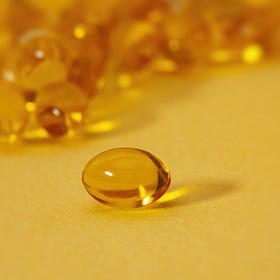Cooking At High Heat With Unsaturated Fats Was Never Such A Good Idea.
These fats do more than just smoke.
Many people have bought into the idea that the consumption of unsaturated fats are healthier than the consumption of saturated fats, and that has also been popularised and propagated by major health experts such as those at the Mayo Clinic.
We do know, however, that unsaturated fats have a lower tolerance to heat than saturated fats — this is evidenced by the smoke point, or the temperature at which a fat starts to exhibit the release of smoke.
Now definitely, we don’t want to to be cooking oils at such high temperatures that they actually start to smoke, because the presence of smoke can lead to an unwanted safety hazard if left uncontrolled.
But what we do know is that when a fat being subjected to heat does start to emanate smoke, there are chemical reactions that are going on within the fat.
What we do know is that the carbon-carbon (C=C) double bonds found in these unsaturated fats are more reactive than the carbon-carbon single bonds. These C=C double bonds are rich in electron density and will very readily undergo electrophilic addition reactions.
The oxygen molecules that we find in the atmosphere are, unfortunately, strong electrophiles. They are drawn to the C=C double bonds.
When sufficient heat is added to an unsaturated fat, as it is in the case of using it to cook foods at high temperatures, the fat will start to emanate smoke, which is a symptom of a chemical reaction occurring in the fat.
As oxygen reacts with the fat, we can see the development of a few reaction pathways, much like how the hydrogenation of unsaturated fats in an industrial process at high temperatures can also kick off those reaction pathways:
Why Hydrogenated Vegetable Oil Isn't Good News For Our Health.
We’ve had butter around for so long. Some say it was discovered in 8000 BC in ancient Africa, when a sheepskin container of milk was jostled around in land travel, resulting in the development of a curdled mixture that became known as butter. Indian cuisine makes extensive use of a clarified butter known as
It’s all about the oxygen molecules finding their way to the C=C double bonds, because of all the lipid peroxidation that will take place thereafter.
There would be a chain reaction that releases even more reactive chemicals.
a. Which in the end can help to speed up the rate of DNA mutations and potentially lead into cancer:
Do Charred Foods Really Cause Cancer?
I believe that people in most households would have fiddled around with Araldite adhesives before. They’re quite useful for gluing things together.
b. Which would also result in an increased rate of damage to cells and other associated biomolecules, such that their ability or effectiveness to carry out the functions that they ought to be executing is reduced significantly.
Therefore, when an oil has a low smoke point, we shouldn’t be using it for cooking foods at high heat. Most of us already do have the wisdom not to do such a silly thing, thankfully. Most of the western world would know better than to use extra-virgin olive oil for high heat cooking, for instance.
But what if the cooking isn’t under our control?
For example, McDonald’s does make use of vegetable oil to cook their French fries. We’d have to question variables such as (i) how many times the oil has been reused, and (ii) the degree of unsaturation in that vegetable oil. These variables aren’t really mentioned and could vary from franchise to franchise.
Even if the oil isn’t smoking at that cooking temperature, it is safe to say that the cooking temperature is hot enough for atmospheric oxygen to react with the C=C bonds in the unsaturated fat molecules. Much like how atmospheric oxygen can also destroy omega-3 fatty acids in fish oil products and turn them rancid:
Omega-3 and Omega-6 Fatty Acids Are Structurally Similar, But They Activate Highly Different Biological Responses.
We tend to think of and describe chemicals in ways that we can attempt to understand it better. The running joke that we have about dihydrogen monoxide is, for example, according to this article:
However, French fries can taste really good. Some of us may get addicted to it and go back for more, without realising how much damage we’re actually dealing to our own bodies.
And that’s the real danger there, isn’t it? We don’t really look at the chemical reactions that occur while food is being cooked, even though we can see visible changes to the food’s structure and texture.
On the microscopic level, however, the chemical reactions can result in the production of even more harmful by-products, which we do need to be conscious of as we look to keep our bodies healthy!
Do feel free to share this article and hit the “subscribe” button to get more updates about the science concepts in nutrition and health, all deconstructed nicely for your convenient perusal!







